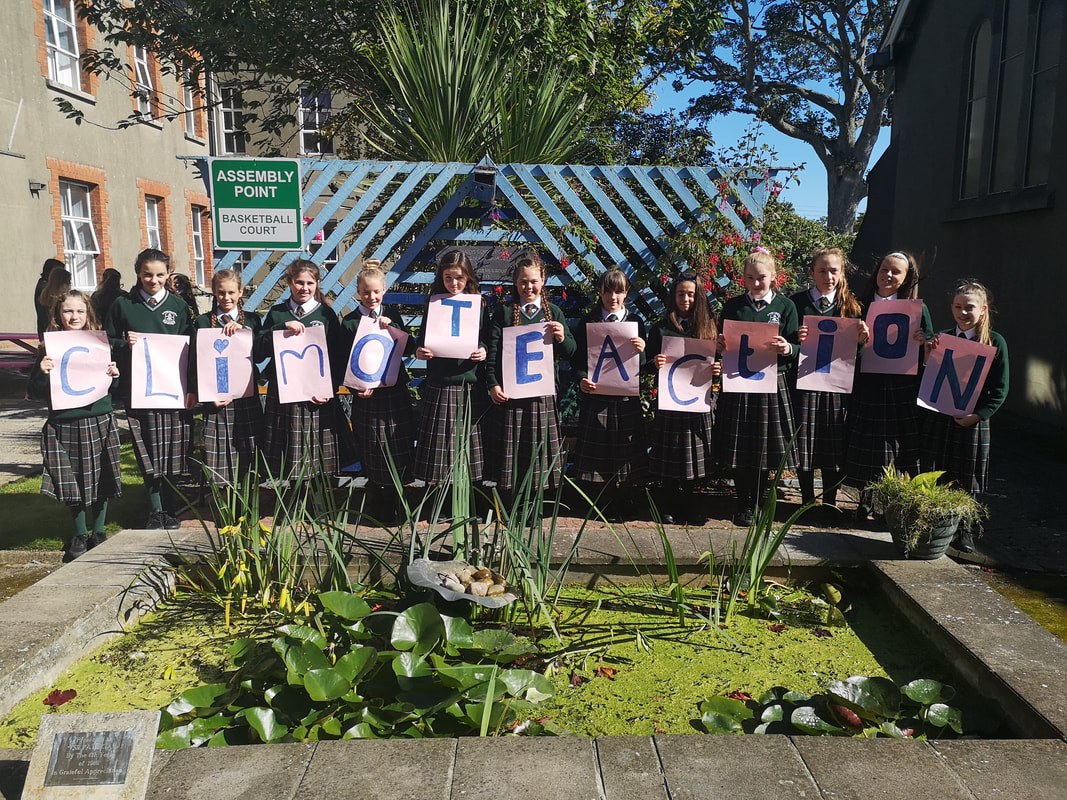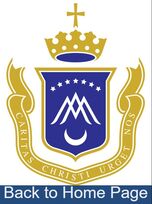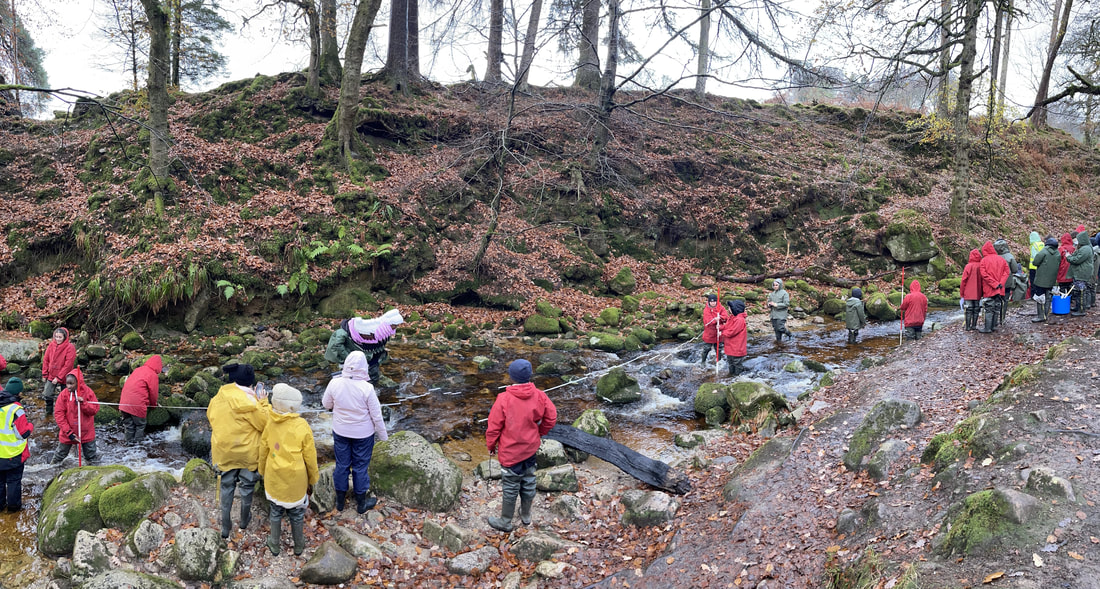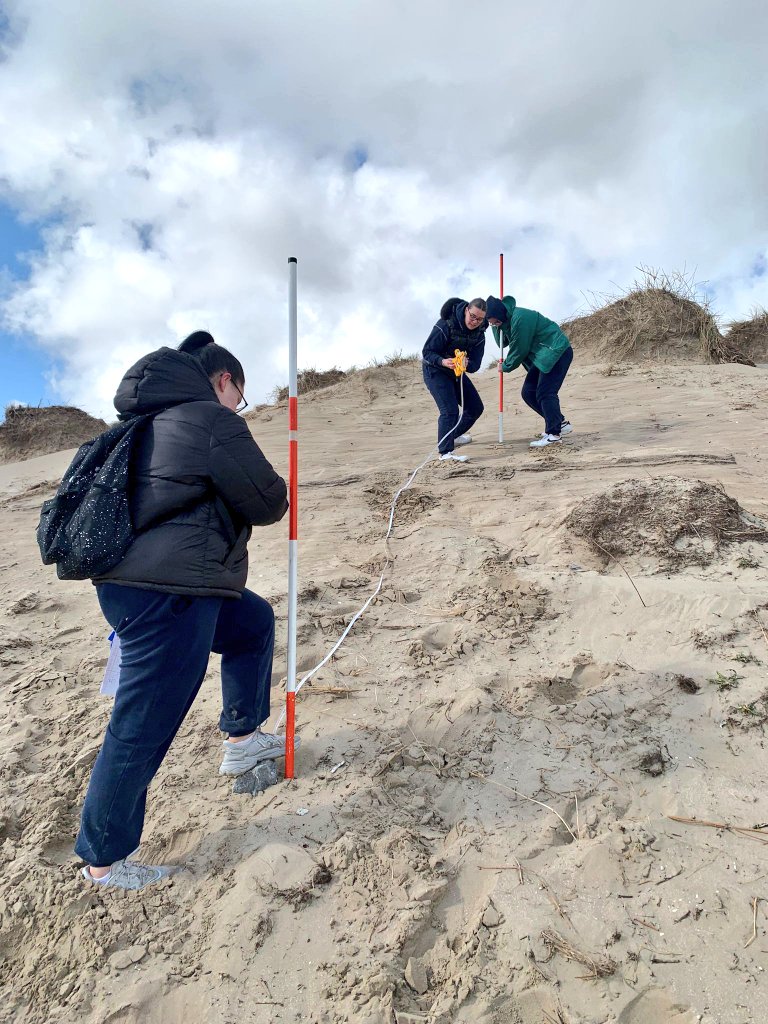Geography
Brief outline of Geography
Geography is essentially the study of anything and its relation to space. There are many different types of geography that simply look at a specific theme, like population, and its relationship to different places on this planet. A key focus of this subject therefore is location and environment. Throughout the post-primary curricula, we look at many different types of geography including physical, human, cultural, economic and ecological geography. Our physical course examines the world through the lens of earth science while our human elements often overlap with other subjects such as business studies and history. We examine the world and our environment from a local to a global scale.
Geography is essentially the study of anything and its relation to space. There are many different types of geography that simply look at a specific theme, like population, and its relationship to different places on this planet. A key focus of this subject therefore is location and environment. Throughout the post-primary curricula, we look at many different types of geography including physical, human, cultural, economic and ecological geography. Our physical course examines the world through the lens of earth science while our human elements often overlap with other subjects such as business studies and history. We examine the world and our environment from a local to a global scale.
In essence geography allows us to understand the world around us. While history looks at the past to gain insights, geography is concerned with the here and now and aims to make predictions for the future. It is a very relevant and up to date subject that is always changing in tandem with what is happening outside of our classroom. Geography is very relevant to our lives outside of school, it can help us make informed and responsible choices when we make decisions that affect our environment, it can help understand how the world around us came to be and it can help us in life when we make decisions that involve location, for example: where to go on holiday, where to buy a house and where to set up a business.
2. Careers in Geography
Nearly every single career has a geographic element to it as nearly every career has something to do with location and space! The most obvious and popular careers in geography involve digital-mapping, environmental consulting, city planning and teaching but there are many, many more areas where a foundation in geography will bring you success. For example: aviation and airline crew, weather recording and meteorology, disaster-engineering, policy-making, transportation management and humanitarian aid.
Nearly every single career has a geographic element to it as nearly every career has something to do with location and space! The most obvious and popular careers in geography involve digital-mapping, environmental consulting, city planning and teaching but there are many, many more areas where a foundation in geography will bring you success. For example: aviation and airline crew, weather recording and meteorology, disaster-engineering, policy-making, transportation management and humanitarian aid.

Under strand 2 we look at human interaction with the natural world around us. We look at how our society uses nature for the benefit (and detriment!) of humankind and how our actions can have serious implications on the environment. In this section we get to learn all about our atmosphere and the weather and how heat is spread out around the globe through wind and sea currents.
Finally, under strand 3 we explore the human geography and how where we live can have a serious impact on the types of lives we lead and the standard of living we experience. We examine population statistics from all over the globe and try to understand why people chose to move from one place to another. We also look at why cities grow in certain spaces and why other places remain rural and countryside.
4. Junior Cycle Exam
The Junior Cycle exam in geography is taken at common level with all third year students sitting the same exam. There is a single written exam that lasts 2 hours and covers all aspects of the course. A new aspect of this exam is that questions are designed to challenge students to apply the geographical knowledge, skills and logic that they have learned in new contexts. Less questions ask students to rely on information they can recall from class and study. Therefore it is important that students practice sample questions in the run up to the exam in this subject as the exam is very active, unique and changeable and really requires students to problem solve.
The Junior Cycle exam in geography is taken at common level with all third year students sitting the same exam. There is a single written exam that lasts 2 hours and covers all aspects of the course. A new aspect of this exam is that questions are designed to challenge students to apply the geographical knowledge, skills and logic that they have learned in new contexts. Less questions ask students to rely on information they can recall from class and study. Therefore it is important that students practice sample questions in the run up to the exam in this subject as the exam is very active, unique and changeable and really requires students to problem solve.
5. Classroom Based Assessments (CBAs)
There are 2 CBAs in geography. CBA 1 is called ‘Geography in the News’ and is completed during second year. CBA 2 is called ‘My Geography’ and is completed in third year.
There are 2 CBAs in geography. CBA 1 is called ‘Geography in the News’ and is completed during second year. CBA 2 is called ‘My Geography’ and is completed in third year.
CBA 1: Geography in the News: For this CBA students complete a research project based on geographical event or theme that has been topical in the previous 12 months. It can be a topic that was newsworthy on an international, national or local scale. Students identify a question / questions they have on this topic and then complete 2 weeks of research in-class on a quest to find answers. Students then spend a week preparing a presentation on their research, findings and the conclusions they have drawn. Students can present their work in any form they wish – orally, written, visually (poster) or in video or audio format (short film or podcast).
CBA 2: My Geography: For this CBA the class will identify features and themes of the geography course in our local area. We will then seek to investigate a related question in the field. For example, students may want to examine the speed of erosion on a local beach, to investigate the success of tourism nearby or to explore the efficiency of public transport in the local area. Students will work outside the classroom for 2 weeks gathering data in the local environment. A final week will be spent where students chose a way to represent their findings in any form their wish - orally, written, visually (poster) or in video or audio format (short film or podcast). This CBA is great practice for the Leaving Cert field study and gives students a real feel for geography in action.
Once CBAs are submitted for assessment, the teacher will use a national framework to sort student work into one of four categories: Exceptional, Above Expectations, In Line with Expectations and Yet to meet Expectations. The teacher will use examples from the NCCA to guide their judgement here. As an additional failsafe to ensure the integrity of this assessment, teachers of the same subject will meet for a SLAR meeting where student work is discussed and category grades are agreed. A table outlining the criteria used to categorise student work in this subject can be found here: https://curriculumonline.ie/getmedia/99635529-c82b-4224-9a2f-6b878b8debf9/Junior-Cycle-Geography_AG.pdf
6. Leaving Cert Geography – Why choose geography?
Geography is truly a subject that is useful for life and will enable you with life skills to help you navigate the world. The leaving certificate course is an extension of the Junior Cycle specification and is therefore quite accessible for students. While it is a long course, on of the widest of the leaving certificate subjects, it is a diverse and varied course which most students enjoy and almost all students find an area of the subject where they have a particular interest.
Geography is truly a subject that is useful for life and will enable you with life skills to help you navigate the world. The leaving certificate course is an extension of the Junior Cycle specification and is therefore quite accessible for students. While it is a long course, on of the widest of the leaving certificate subjects, it is a diverse and varied course which most students enjoy and almost all students find an area of the subject where they have a particular interest.
7. Leaving Cert Geography – The Course
The Leaving Certificate Course is broken down into 5 sections:
1: Core Unit 1: Patterns and Processes in the Physical Environment.
2: Core Unit 2: Regional Geography
3: Core Unit 3: Geographical Investigation and Skills (Field Study)
4: Elective Unit: Patterns and Processes in Economic Activities or Patterns and Processes in the Human Environment
5: Optional Unit: Global Interdependance or Geoecology or Culture and Identity or The Atmosphere-Ocean Environment.
The Leaving Certificate Course is broken down into 5 sections:
1: Core Unit 1: Patterns and Processes in the Physical Environment.
2: Core Unit 2: Regional Geography
3: Core Unit 3: Geographical Investigation and Skills (Field Study)
4: Elective Unit: Patterns and Processes in Economic Activities or Patterns and Processes in the Human Environment
5: Optional Unit: Global Interdependance or Geoecology or Culture and Identity or The Atmosphere-Ocean Environment.
8. List of Leaving Certificate Topics:
Core Unit 1: Patterns and Processes in the Physical Environment:
Core Unit 1: Patterns and Processes in the Physical Environment:
- Plate Tectonics
- Folding and Faulting
- Earthquakes
- Volcanoes
- The Rock Cycle
- Weathering
- Surface Processes – Rivers, Coasts and Glaciation
- Isostacy and Rejuvenation (New topic at Senior Cycle).
Core Unit 2: Regional Geography:
- The Concept of a Region
- Dynamics of a Region – Irish Regions
- Dynamics of a Region – European Regions
- Dynamics of a Region - Subcontinental Case Study
- Complexity of Regions – Changing Boundaries
Elective Unit 5: Patterns and Processes in the Human Environment
- The Dynamics of Population
- The Dynamics of Settlement
9. The Leaving Certificate Exam
20% of students’ grade is completed in a field study investigation that is written up and submitted in a report by the end of April in 6th year. 80% of the final grade is made of a single paper exam that lasts 2 hours and 50 minutes and takes place during the first week of the Leaving Cert Examinations. The exam is broken into 5 sections:
20% of students’ grade is completed in a field study investigation that is written up and submitted in a report by the end of April in 6th year. 80% of the final grade is made of a single paper exam that lasts 2 hours and 50 minutes and takes place during the first week of the Leaving Cert Examinations. The exam is broken into 5 sections:
- Short Questions (80 marks)
- Core Unit 1 (80 marks)
- Core Unit 2 (80 marks)
- Elective (80 marks)
- Option (80 marks)
10. Events Held During the Year
In November, Geography Week is celebrated with in-class events and whole school competitions. This is an international celebration of geography and each year a different theme is chosen to be explored and publicised during the week.
In November TY students visit a Airfield Farm – a sustainable farm – in Dundrum to learn about sustainable practices in farming and how we can work with nature to mutually benefit from what our environment has to offer.
6th Years travel to complete their field study before Christmas. This year they completed a river field study in Kippure Estate, Co. Wicklow.
In January 2nd years complete CBA1 in geography.
In February 3rd years complete CBA2 in geography.
In February a representative from the D.A.A. visits senior level students to give a talk on the importance of Dublin Airport in promoting the economy of the Greater Dublin Area.
In November, Geography Week is celebrated with in-class events and whole school competitions. This is an international celebration of geography and each year a different theme is chosen to be explored and publicised during the week.
In November TY students visit a Airfield Farm – a sustainable farm – in Dundrum to learn about sustainable practices in farming and how we can work with nature to mutually benefit from what our environment has to offer.
6th Years travel to complete their field study before Christmas. This year they completed a river field study in Kippure Estate, Co. Wicklow.
In January 2nd years complete CBA1 in geography.
In February 3rd years complete CBA2 in geography.
In February a representative from the D.A.A. visits senior level students to give a talk on the importance of Dublin Airport in promoting the economy of the Greater Dublin Area.
Subject Links
Booklist: https://www.stmarysbaldoyle.org/booklists.html
Junior Cycle Specification for Geography: https://www.curriculumonline.ie/getmedia/2a7a8d03-00e6-4980-bf20-f58def95688f/JC_Geography-en.pdf
Leaving Certificate Curriculum for Geography: https://www.curriculumonline.ie/Senior-Cycle/Senior-Cycle-Subjects/Geography/
Booklist: https://www.stmarysbaldoyle.org/booklists.html
Junior Cycle Specification for Geography: https://www.curriculumonline.ie/getmedia/2a7a8d03-00e6-4980-bf20-f58def95688f/JC_Geography-en.pdf
Leaving Certificate Curriculum for Geography: https://www.curriculumonline.ie/Senior-Cycle/Senior-Cycle-Subjects/Geography/
Helpful Websites for Geography
- Time for Geography: https://timeforgeography.co.uk/
- Internet Geography (Geography in the News): https://www.internetgeography.net/geography-in-the-news/
- Scoilnet Maps (All discovery maps available online): https://maps.scoilnet.ie/
- Scoilnet Geography: https://www.scoilnet.ie/search/?q=geography&fq=school_level%3A2
- The Geography Page (Leaving Cert Geography): http://www.thegeographypage.com/
- BBC Bitesize Geography: https://www.bbc.co.uk/bitesize/subjects/zkw76sg
- Ms Fisher’s Geography Blog (All years – excellent resources and help): http://fishgeog.weebly.com/
- National Geographic: https://www.nationalgeographic.com/
- US Geological Society (Plate Tectonics): https://www.usgs.gov/
- Presentation Wexford LC Geography Resources: http://lcgeography.preswex.ie/
- Leaving Cert Geography: https://leavingcertgeography.weebly.com/
- Skin in the Game Podcast (Leaving Cert Geography): https://podcasts.apple.com/ie/podcast/skin-in-the-game-leaving-certificate-podcast/id1508537475
Helpful Instagram Accounts to Follow
@instateachernetwork
@the_scoilgram
@visualcap
@geogviz
@geography_rocks_
@instateachernetwork
@the_scoilgram
@visualcap
@geogviz
@geography_rocks_


